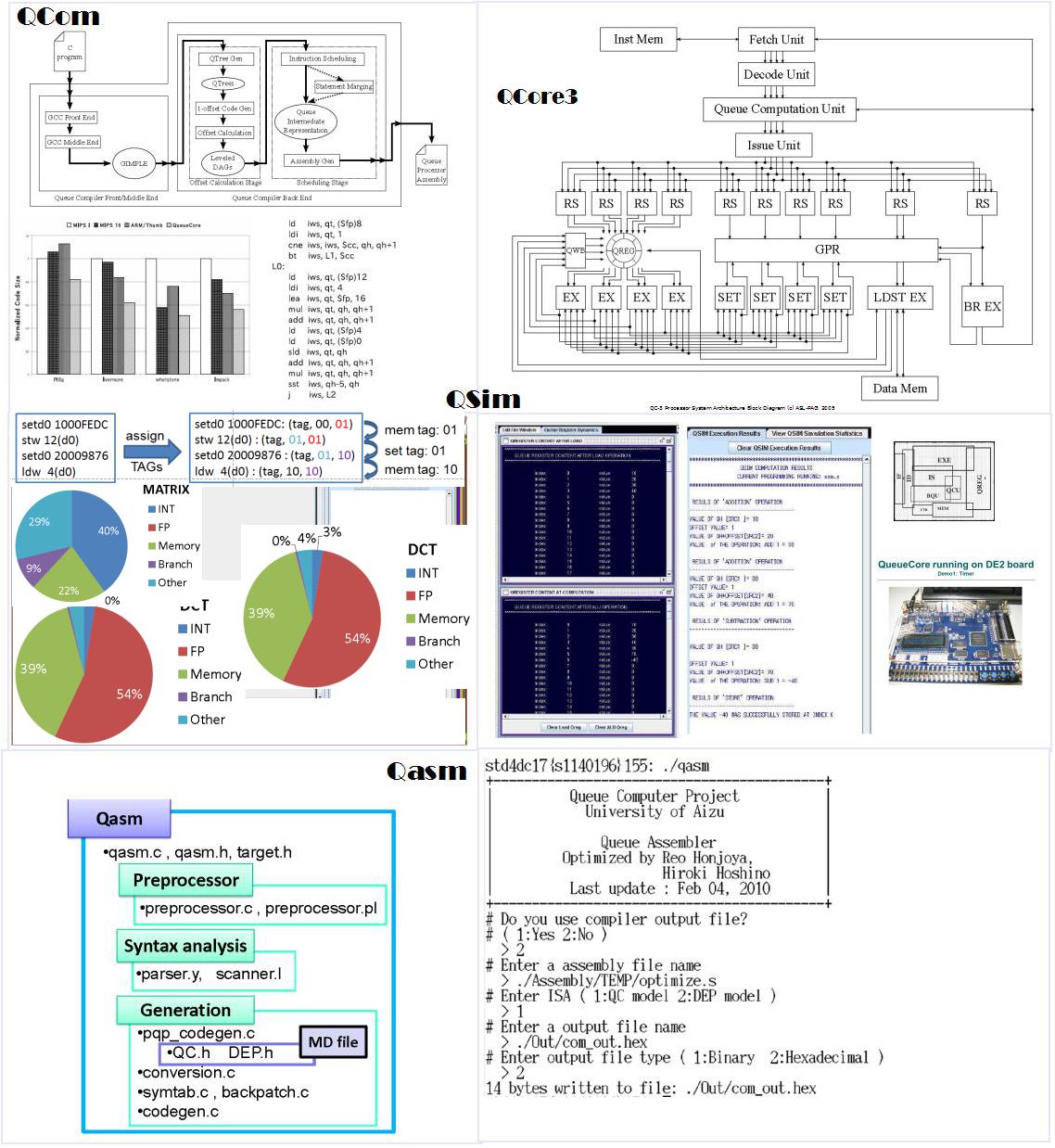The complete developed tool-chain is made of
compiler (QCom), assembler(Qasm), functional and cycle accurate
simulator (QSim), and soft-core hardware processor (QueueCore
(QC-1, QC-2, and QC-3)). Note: Your use of any information or
materials on this website is entirely at your own risk, for
which we shall not be liable.
(c) Ben Abdallah Abderazek, 1999-2009.


